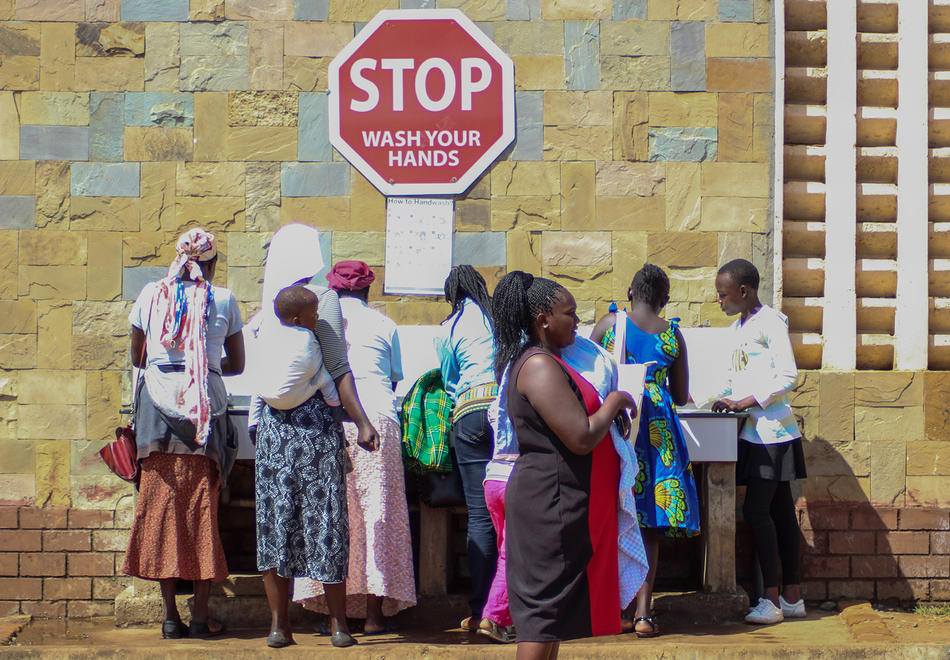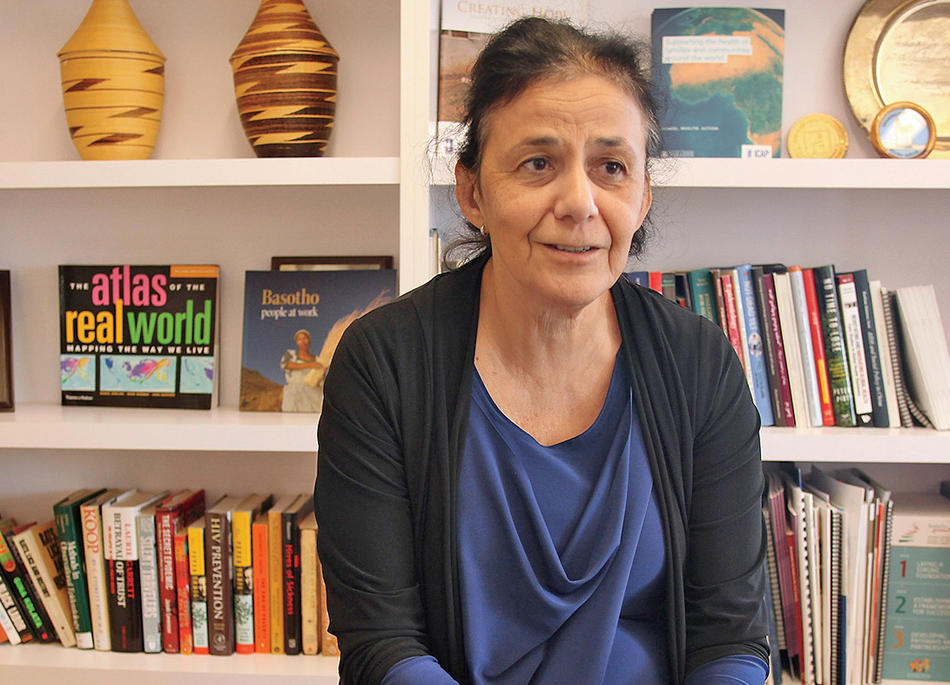In April, while media attention was focused on Asia, Europe, and the US, Wafaa El-Sadr ’91PH was watching Africa. Confirmed cases of COVID-19 in sub-Saharan Africa were rising, portending a major humanitarian disaster.
El-Sadr, a University Professor and a professor of epidemiology and medicine, is the director of ICAP at Columbia University, a global health center at the Mailman School of Public Health that has been fighting HIV and Ebola in Africa since 2003. She fears that hard-won public-health gains of many African countries could be “set back decades” by COVID-19.
ICAP, whose affiliates include 1,800 staff members around the world, is mobilizing in Kenya, Mozambique, Côte d’Ivoire, and other countries, setting up triage tents to evaluate patients, helping laboratories get tests and equipment, and strategizing with health ministries. One of the biggest hurdles is securing adequate funding for these basic interventions. And with wealthy countries buying up supplies — masks, gowns, tests, ventilators — poorer nations are left empty-handed. “If this disease takes off in Africa,” says El-Sadr, “there is no way they’ll have what’s needed.”
Still, ICAP has identified lessons from HIV and Ebola that could streamline governments’ response to COVID-19.
“First,” says El-Sadr, “governments must gain the trust of their populations. They must be transparent and communicate frequently in order to prevent rumors and conspiracy theories.” Misinformation plagued the response to HIV and Ebola, leading many people to dismiss the threats or see them as government plots. And fears of being stigmatized prevented the sick from getting help. “You must mobilize opinion leaders to assuage these anxieties. We learned how to do that effectively for HIV, and we will now have to apply those lessons to a much more transmissible virus.”
Another lesson, says El-Sadr, is that in many places, lockdowns simply won’t work. “If you’re a vendor who sells pancakes for a few pennies a day, you cannot self-isolate. You have to be in the market. You have to interact with people. Otherwise, you will starve.” In countries where ICAP works, many people live five or six to a room, often without running water or soap. “It’s just not feasible to have people do what we’d want them to do to protect themselves,” says El-Sadr.
Then there are the challenges of ramping up the medical system: situating testing sites, building laboratory capacity, and transporting health-care workers to remote places to collect specimens. ICAP has used motorbikes and the mail system to convey diagnostic samples for HIV, and a large coronavirus outbreak will place even greater demands on these assets.
To deliver information, ICAP relies on radio broadcasts. “Radio reaches far and wide,” El-Sadr says. “For HIV, we found famous people — a soccer player or a musician — to record the messages, and we’ll do the same for COVID-19. Radio is the best way to tell people what to do if they feel sick.”
If Africa has one advantage, it’s that leaders have learned from the crises in Europe and the US. “They know that you have to act fast,” says El-Sadr. “Even with the limitations of social distancing and lockdowns, they have acted decisively and quickly. The people on the ground in Africa are working very hard,
This article appears in the Spring/Summer 2020 print edition of Columbia Magazine as part of the cover story, "What We Have Learned From the Pandemic (So Far)."




